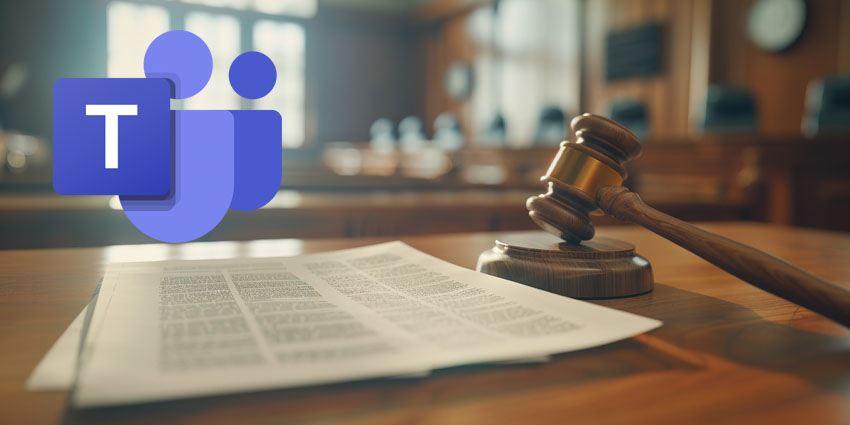Microsoft has announced a new version of its 365 productivity suite, “Microsoft 365 Local.”
But far from being an announcement about bringing new features, this announcement seems to go against the grain of the industry’s push toward the cloud by releasing an on-premises solution.
“Today, we are taking the next step in strengthening our European digital commitments to empower our customers with greater choice, more control over their data privacy, and the most robust digital resilience we have ever offered,”
Judson Althoff, Microsoft Executive Vice President and Chief Commercial Officer, said of the announcement.
Its new Sovereign Private Cloud solution will run on Azure Local, a subset of the Microsoft cloud. Microsoft claim that, among other things, that Azure Local is an optimal environment in which to run applications that perform better on-premises due to requirements for low latency or security.
However, rather than having the ability to give customers more control or performance, is this Microsoft trying to head off growing sentiments of European cloud sovereignty?
Azure Local and Microsoft 365 Local’s Offering
Microsoft 365, which includes services like Office 365, Microsoft Exchange Online, and SharePoint Online, is normally only available in Microsoft’s public cloud and runs on the company’s Azure infrastructure.
Microsoft 365 Local and Azure Local work very much the same as that, but with the main difference being that it can be hosted in a Sovereign Public Cloud, Sovereign Private Cloud, and National Partner Clouds.
“Building on our 42-year history as a company in Europe, we are expanding our efforts with Microsoft Sovereign Cloud,” Althoff said.
“This offer spans both public cloud and private digital infrastructure, ensuring our customers can choose the right balance of control, compliance, and capability for their needs.”
Microsoft’s new suite of Cloud offerings
Sovereign Public Cloud
- Data stays in Europe, under European law
- Data Guardian: operations and access controlled by Europeans
- Sovereign controls for policy enforcement
- Applies to existing European cloud data center regions with no migration
Sovereign Private Cloud
- Azure Local + Microsoft 365 Local: integrated cloud and productivity
- Hybrid or disconnected at your location
- Validated architecture and partner ecosystem
- Virtualization services
National Partner Clouds
- For government and critical infrastructure criteria
- Government-approved local operator independent from Microsoft
- Clouds in Germany (Delos Cloud) and France (Bleu) with local ownership and isolated infrastructure
What this essentially means is that Microsoft will allow users to keep using its services and systems, but on a cloud of their choosing.
This can be a dedicated Microsoft cloud operated across all European data center regions, a private cloud, or even an independent cloud provider that Microsoft has approved.
In addition to this, new features like External Key Management for customer-controlled encryption that can be used for Azure on-premises, Regulated Environment Management for simplified configuration, and Data Guardian for European operations are designed to give employees greater confidence by ensuring that only Microsoft employees in the region can control access to its systems.
The service, currently in preview, will be generally available in all European cloud regions later this year. National Partner Clouds will be offered in France and Germany via Bleu in France and with SAP subsidiary Delos Cloud in Germany.
The Delos agreement will see the company operate a sovereign cloud for the German public sector that is designed to meet the German government’s Cloud Platform Requirements.
Germany has some of Europe’s strictest cloud requirements and has long battled with Microsoft products over compliance. Recent moves in the country could signal that it is seeking to move away from the tech giant’s suite altogether.
A Bid to Quell Growing European Sovereignty Sentiments?
Just days before the Microsoft 365 Local and Azure Local announcements, government administrations in both Germany and Denmark announced they were moving away from the Microsoft suite in a bid to run their systems on open-source software.
In less than three months, Schleswig-Holstein will stop using any of Microsoft’s programs at work, a move affecting 30,000 now, with another 30,000 due to follow suit.
Speaking of the move, the state’s Digitalization Minister, Dirk Schroedter, said the turn to open-source software is designed to “take back control” over data storage and ensure “digital sovereignty.”
“We’re done with Teams!”
Schroedter said.
Equally, Denmark is making larger efforts to remove Microsoft’s suite at both the provincial and national levels.
Minister of Digitalization Caroline Stage Olsen announced that the Danish government will start moving away from Microsoft Office to LibreOffice, with the country’s Minister of Emergency Situations, Torsten Schack Pedersen, telling companies to “create exit plans for the use of cloud services.”
This coincided with the announcement that Denmark’s biggest municipalities — Copenhagen and Aarhus — are ending their use of Microsoft systems.
These sentiments have been echoed by Dutch lawmakers, where members of its parliament passed eight motions urging the government to ditch US-made tech for homegrown alternatives. Equally, technology companies and lobbyists are pressuring the European Commission to take action to reduce the region’s reliance on foreign-owned digital services and infrastructure.
With such sentiment seemingly snowballing across Europe this year, the latest move by Microsoft may signal an effort to stem this anti-American cloud monopoly from gaining wider ground.
Already, the new Microsoft 365 Local and Azure Local release was bundled in a press release titled “Announcing comprehensive sovereign solutions empowering European organizations,” so the company seems to be well aware of where the wind is blowing.
Previously, Microsoft released an EU Data Boundary that aims to ensure European customers’ data doesn’t leave the bloc’s boundaries so that it didn’t get legislated out of the EU market following GDPR.
Yet despite the company showing a willingness to make concessions, it has still fallen foul of EU laws.
An EU probe into Microsoft Teams accused the software giant of abusing its market dominance by tying its video conferencing tool, Teams, to its widely used Office 365.
Microsoft has since unbundled Teams from Office 365 in the EU, but critics said the changes were too narrow.
Microsoft has since promised additional concessions, such as continuing the Teams and Office separation for seven years, in order to avoid a fine.
Is Local Enough to Stop a Microsoft Migration?
To some, Microsoft’s introduction of 365 Local may feel less like innovation and more like damage control.
The company is clearly scrambling to address a problem that has been brewing and is likely exacerbated under current “America First” politics, which have erupted into European concerns about data sovereignty.
Yet the real test won’t be whether Microsoft’s offering is enough to calm concerns, but whether European organizations buy into this hybrid compromise.
For governments and enterprises that have already started their exodus from Microsoft’s ecosystem, 365 Local may be too little, too late.
Yet it might be enough to quell the momentum behind open-source alternatives and offerings present from European cloud providers.
However, the company’s willingness to further fragment its own cloud offering speaks to just how seriously it views the European sovereignty threat to its business model. With Europe being the world’s third-biggest cloud market and with much of it operating under similar regulations thanks to the EU, it is no wonder why.
Whether Microsoft 365 Local succeeds in keeping European customers in the fold or merely delays an inevitable shift toward digital independence remains to be seen.
But one thing is clear: the era of unquestioned American tech dominance in Europe is facing its most serious challenge yet.







